With mass availability in Q4 2007, the SpinPoint F1 series would be Samsung’s all-new line-up of drives, coming in a range of capacities up to 1TB with this particular model. In late-2007, these models were the performance champions of the market [1], holding a sturdy reputation well into the early 2010’s.
As a result of their market position, alongside not being overly expensive, this drive was purchased new in 2009 for daily use.
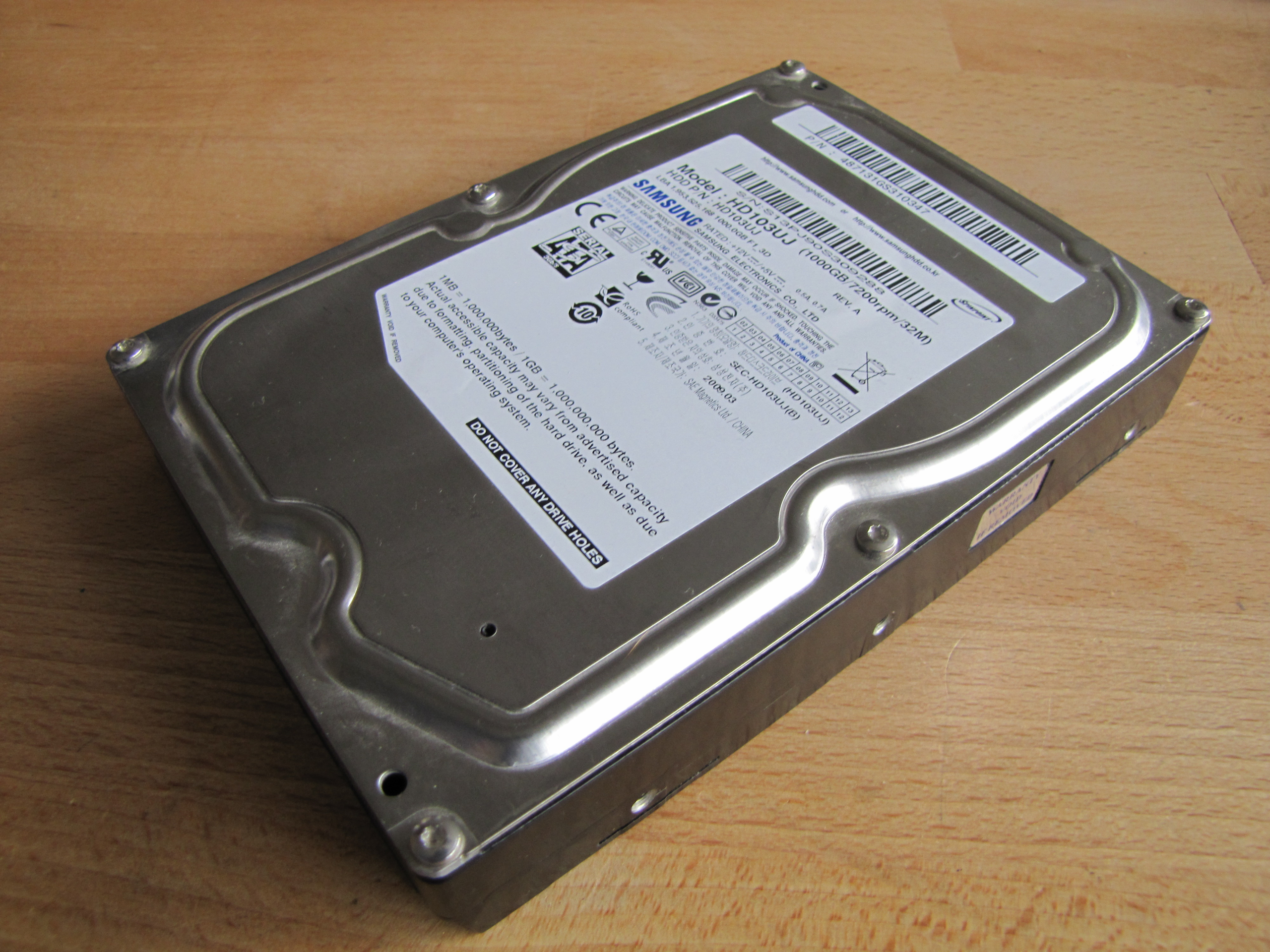
Drive Attributes ---------------------------------------- Samsung SpinPoint F1 HD103UJ ---------------------------------------- Capacity 1TB Mfc Date 2009-03 Format 3.5" Interface SATA Platters 3 Heads 6 Cache 32MB RPM 7200 Protocol Serial-ATA/300 Origin China (SAE-Magnetics) ----------------------------------------
This drive holds three platters, with a density of 334GB per-platter. This model would have the unfortunate reality of being re-branded to a Seagate identification model (ST1000DM006) post their acquisition of Samsung’s disk drive division in 2011. Only the 750GB and 1TB models of the SpinPoint F1 series would hold the maximum 32MB of cache.
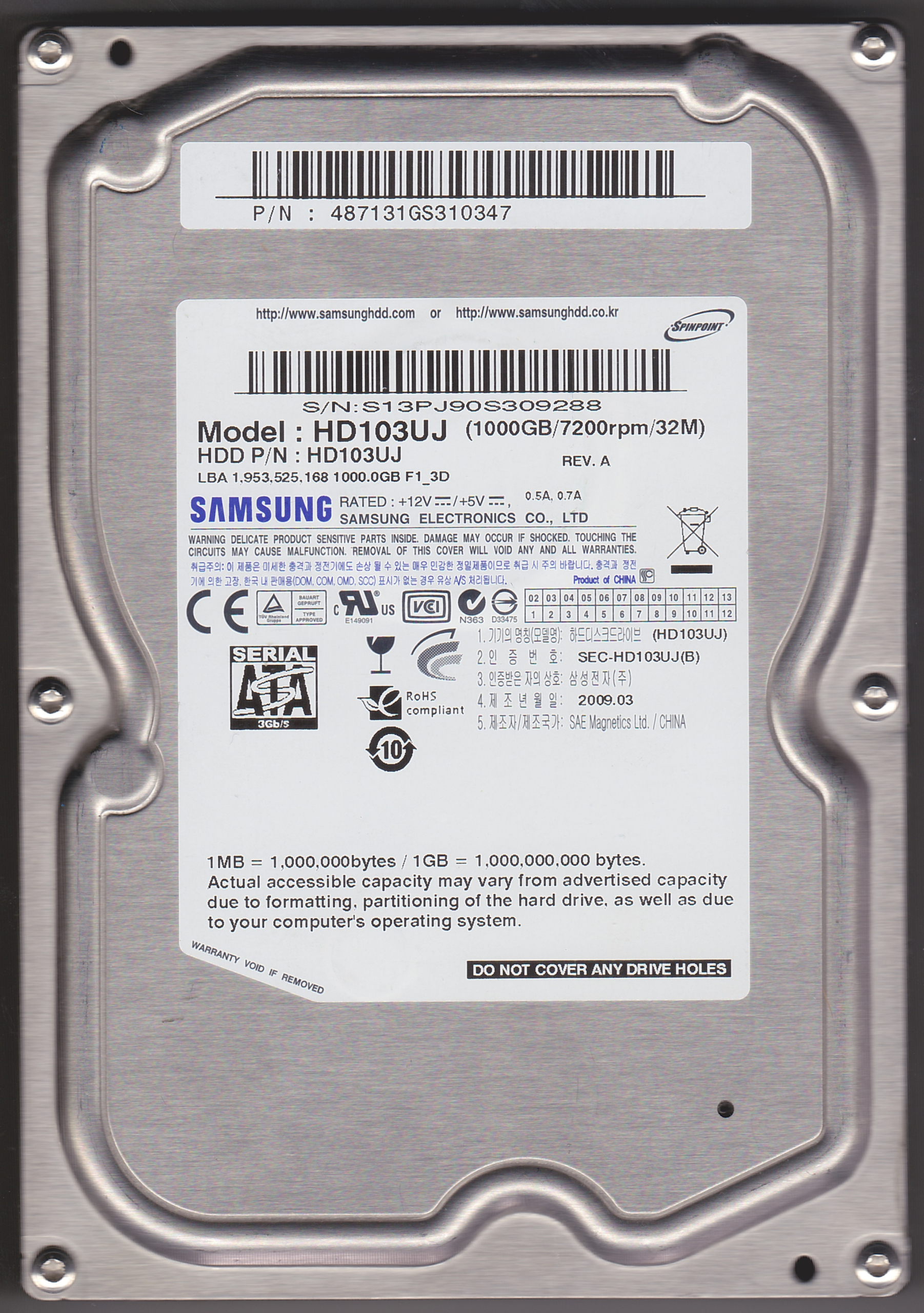
Translating the label from Korean results in it clearly stating on line 5 that the drive was manufactured by SAE Magnetics Ltd in China. SAE Magnetics still provide a multitude of services for the current hard drive market, previously evidently also being a contractor for Samsung. In 1986, only 6 years after their conception, SAE Magnetics became a fully-owned subsidiary of TDK Corporation.
This example was produced in March 2009, being a few months prior to when it was purchased.
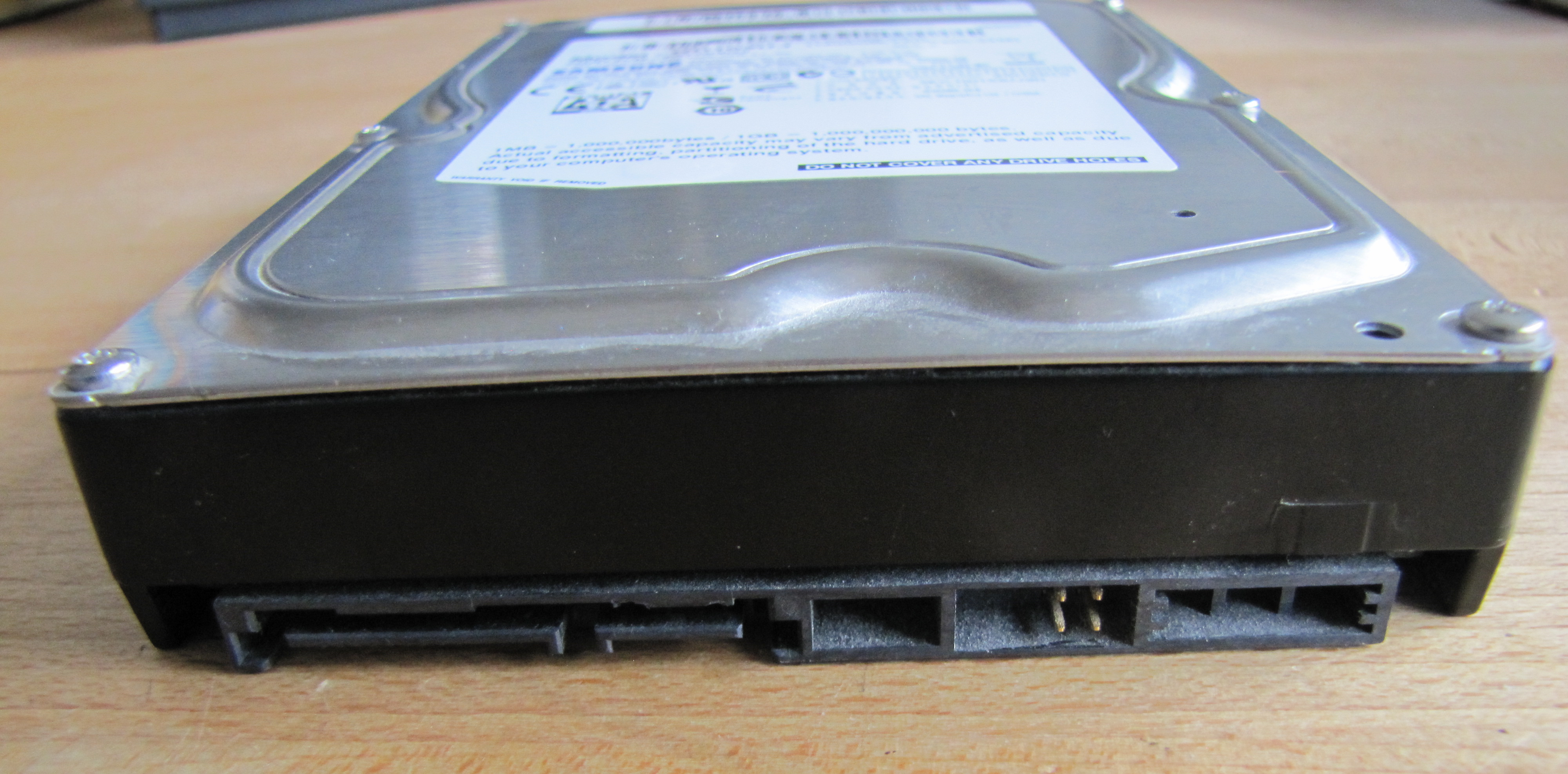
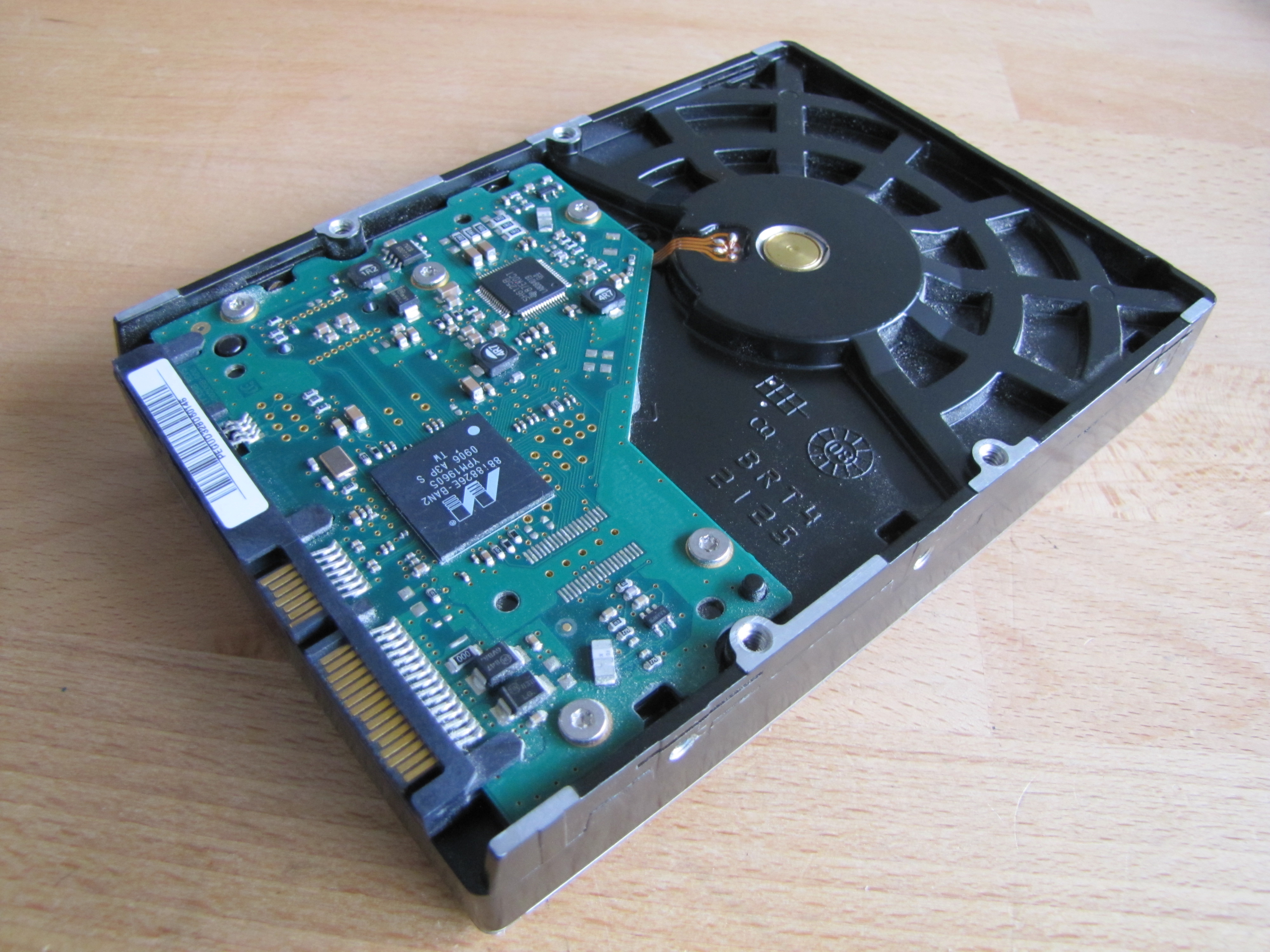
It’s simple and looks like a Samsung, allowing for the full three-platter configuration.
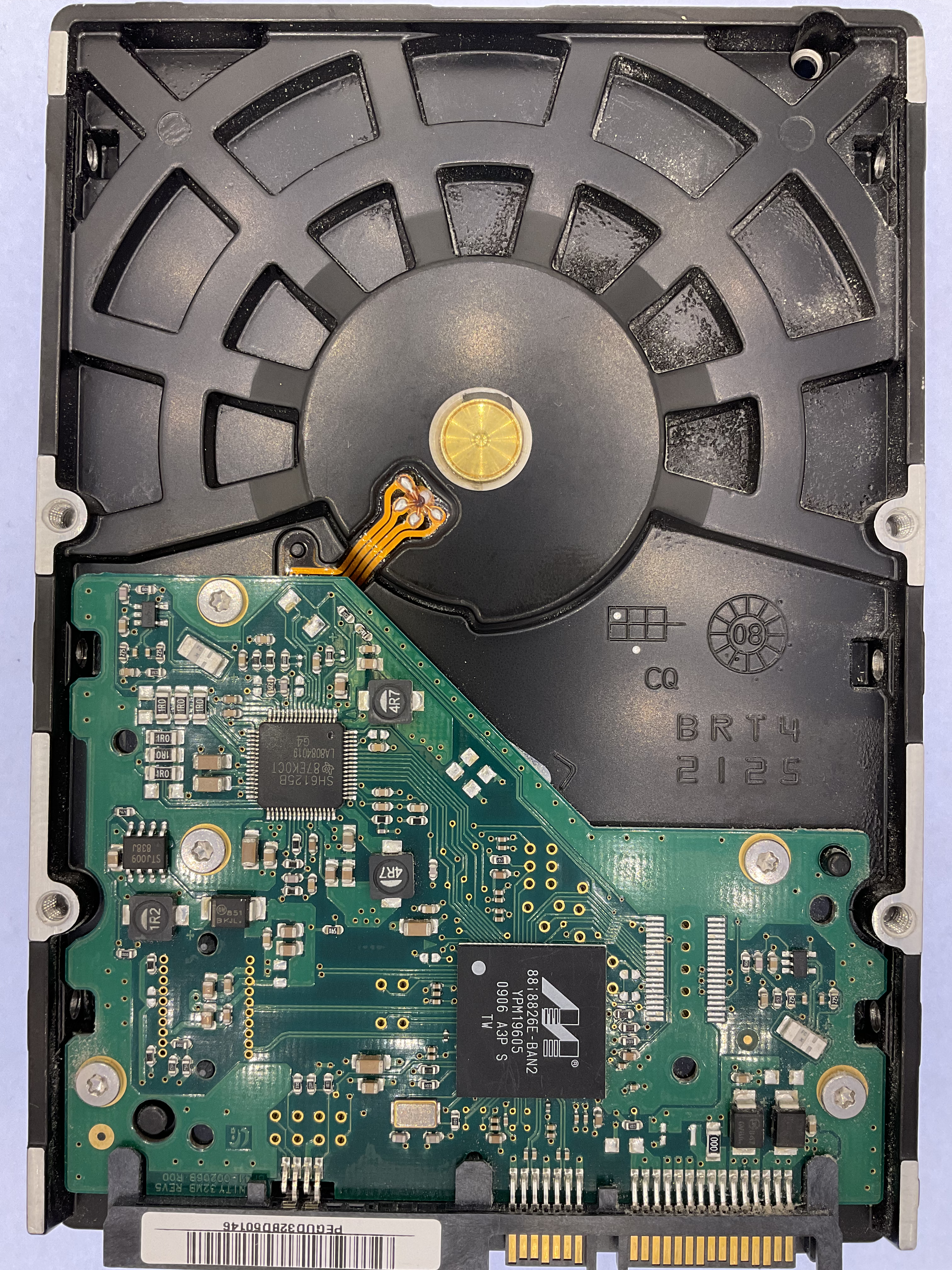
The rear of the drive is basic, with the board positioned in a way to utilise pressure contacts for the spindle motor.
The 32MB of cache is integrated into the Marvell 88i8826E-BAN2 microcontroller IC, with the spindle motor controller being supplied by Texas Instruments.
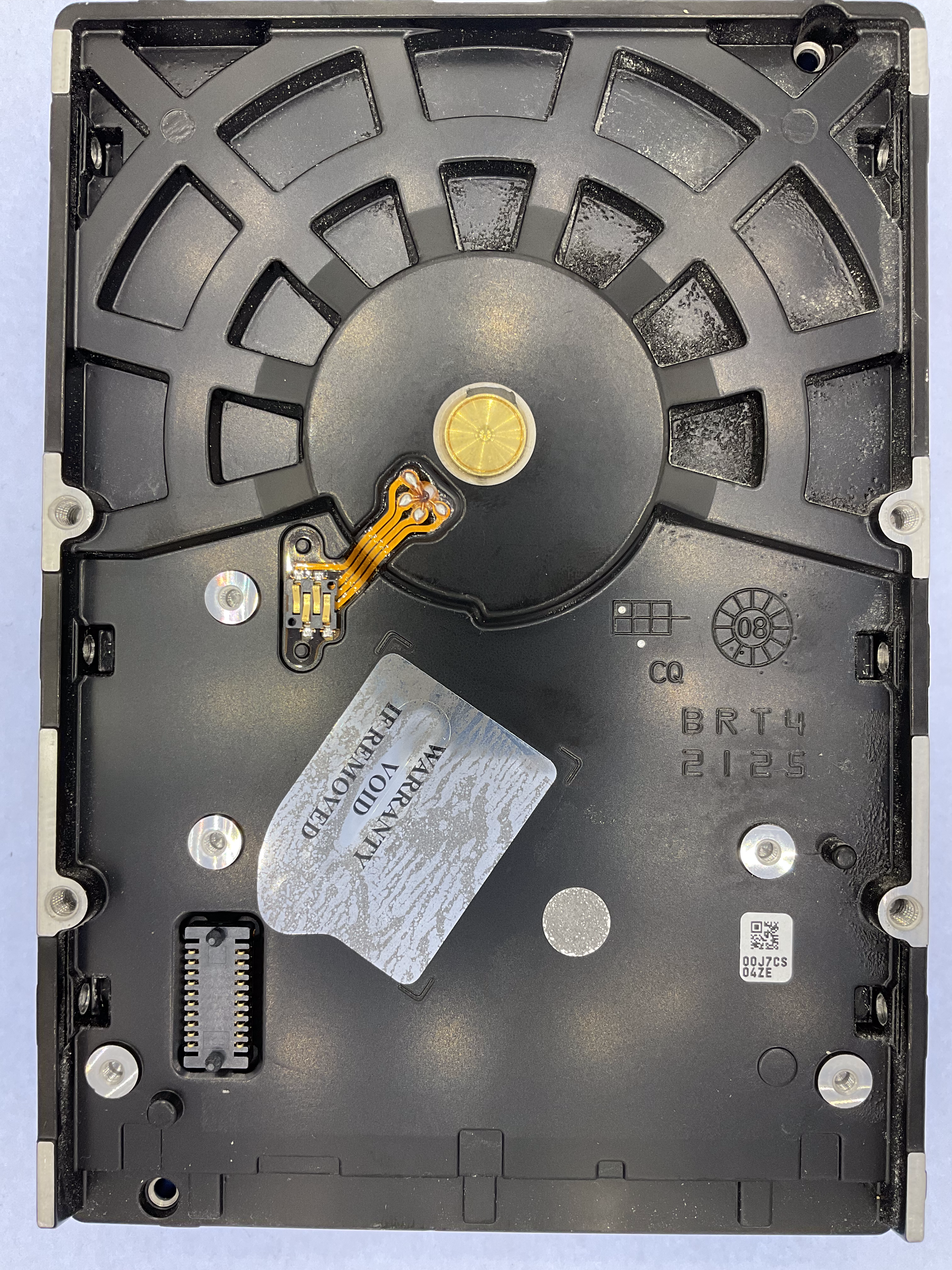
Beneath the PCB, there’s not much to speak of. The head-stack interface connector is present, alongside the unbranded spindle motor contact points. Surprisingly, the foam on this drive hasn’t held up too well, with it starting to get quite sticky.
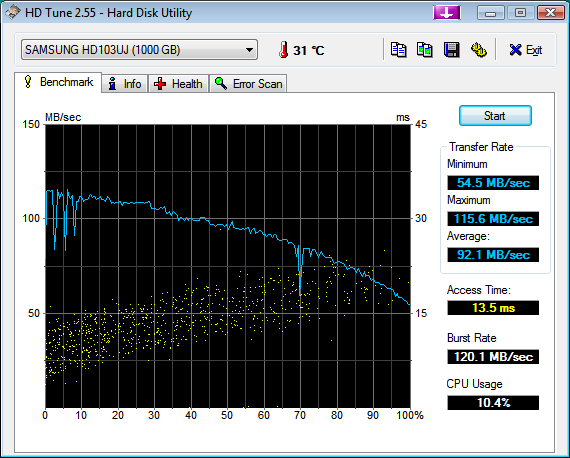
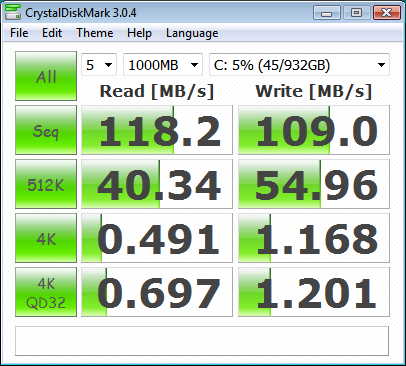
For 2007, these were impressive figures. Even in 2009, these were certainly decent drives for the period, which is the reason why this one was purchased initially. Upgrading from a lowly 80GB Samsung SpinPoint P80 SP0842N made this drive to be quite a phenomenal unit to gain. Past good experiences with Samsung drives certainly helped.
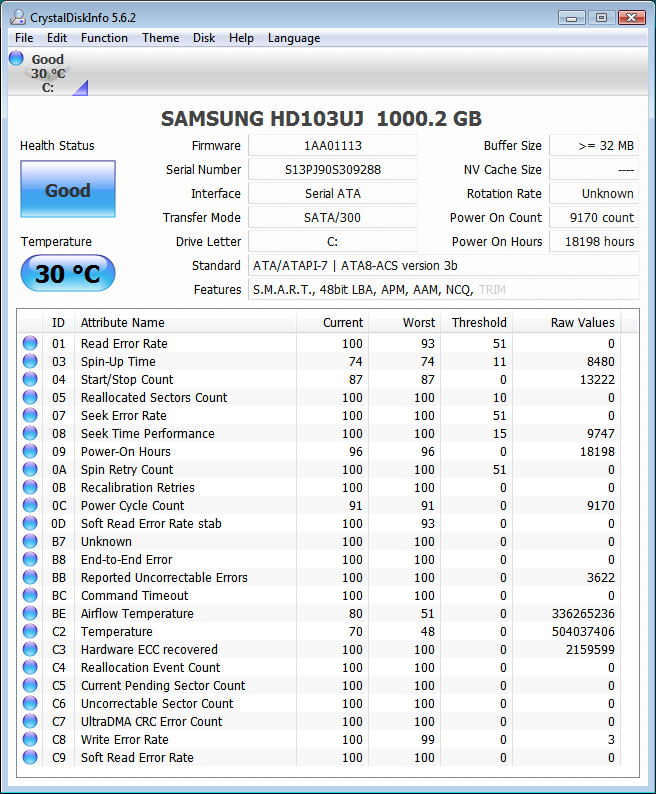
This unit was in use for several years, but not for huge periods daily. With just over 18k hours on the clock, I’d hope this unit will last a lot longer. So far, I’ve certainly had my money’s worth out of it, so I can’t complain too much. Any drive handling Windows Vista successfully for several years is one worth cherishing!
If you missed the video I made on this drive, you can find it here:
References:
[1] Tom’s Hardware (2007), Samsung Spinpoint F1 HDDs: New Winners?, by Patrick Schmid, published November 21, 2007, acquired from: https://www.tomshardware.com/reviews/samsung-overtakes-a-bang,1730-11.html